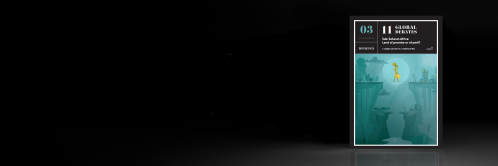On October 17, Jeffery Gettleman published an article questioning not only the sustainability but the reality of the “Africa Rising” narrative that has persisted under the dramatic economic growth the continent has undergone in recent years. Citing Ethiopia’s recent unrest, South Sudan’s civil war, and the region’s high unemployment rates, Gettleman intimates that the narrative around the continent should really be “Africa Reeling.”
Despite these low points in Africa, though, many countries in the continent still continue to truly rise. Regional integration is reimagining how African countries interact and creating immense opportunities for poor, landlocked countries in particular. The Human Development Indicators demonstrate social and economic progress, as does the Mo Ibrahim Index, which highlights the positive steps countries are taking towards democracy and good governance. In spite of pockets of violence, Africa has become much more peaceful. A recent World Bank report even distinguishes between “established” and “improved” African economies in contrast to economies “stuck in the middle”, “slipping” and “falling behind.” Cherry-picking some of the continent’s steps backward does not undo the Africa Rising narrative but rather takes us 16 years back to the then-popular “Hopeless Continent” narrative— a fruitless one.
Whether described as “Hopeless,” “Rising,” or “Reeling,” no one can deny that African countries have made substantial gains. In a recent piece, I argue that “missed in the binary of a hopeless versus a rosy narrative are large disparities among countries in terms of political and economic governance.” So many countries are quickly rising to the top. Countries such as Côte d’Ivoire, Ethiopia (in spite of the regrettable recent internal violence), Kenya (it is ironic that his article is a “Memo from Nairobi”), and Senegal are expected to grow at more than 5 percent this year (IMF, 2016). Yes, not surprisingly, oil exporters will continue to suffer from the lack of diversification of their sources of revenues, and South Africa—a middle-income country—is struggling from self-inflicted wounds. But even within these countries, some regions and sectors will fare better than others.
Africans are past the debate of whether their countries are hopeless, rising, or reeling. What they want to see is resilient, sustainable, and inclusive growth, and the debate they are interested in is about the actual policies that will generate such outcomes.
Africans are past the debate of whether their countries are hopeless, rising, or reeling. What they want to see is resilient, sustainable, and inclusive growth, and the debate they are interested in is about the actual policies that will generate such outcomes. That is why young Burkinabe, following the example of youth in Senegal, took to the street in Ouagadougou two years ago to stop and reverse attacks against democracy. That is what many Congolese in the Democratic Republic of the Congo are fighting for right now.
Africans are asking themselves one question: What’s next? That is the debate they want to have. What the current economic shocks to the continent are doing is separating countries into two groups—and the backsliding in a few does not mean an avalanche for all. As I have argued recently, countries where national policymakers have a sense of urgency and the drive to implement concrete strategies will have a good chance at realizing the region’s promise. They are forging ahead in some countries, even if the path is not smooth. Getting lagging countries on board is the biggest challenge. Doing so requires a mix of domestic policies and global governance reforms. For now, domestic actors hold the most potential to be the main agents of change—and they are not reeling from the challenges that face them.
The Brookings Institution is committed to quality, independence, and impact.
We are supported by a diverse array of funders. In line with our values and policies, each Brookings publication represents the sole views of its author(s).







Commentary
Africa is not reeling
October 21, 2016